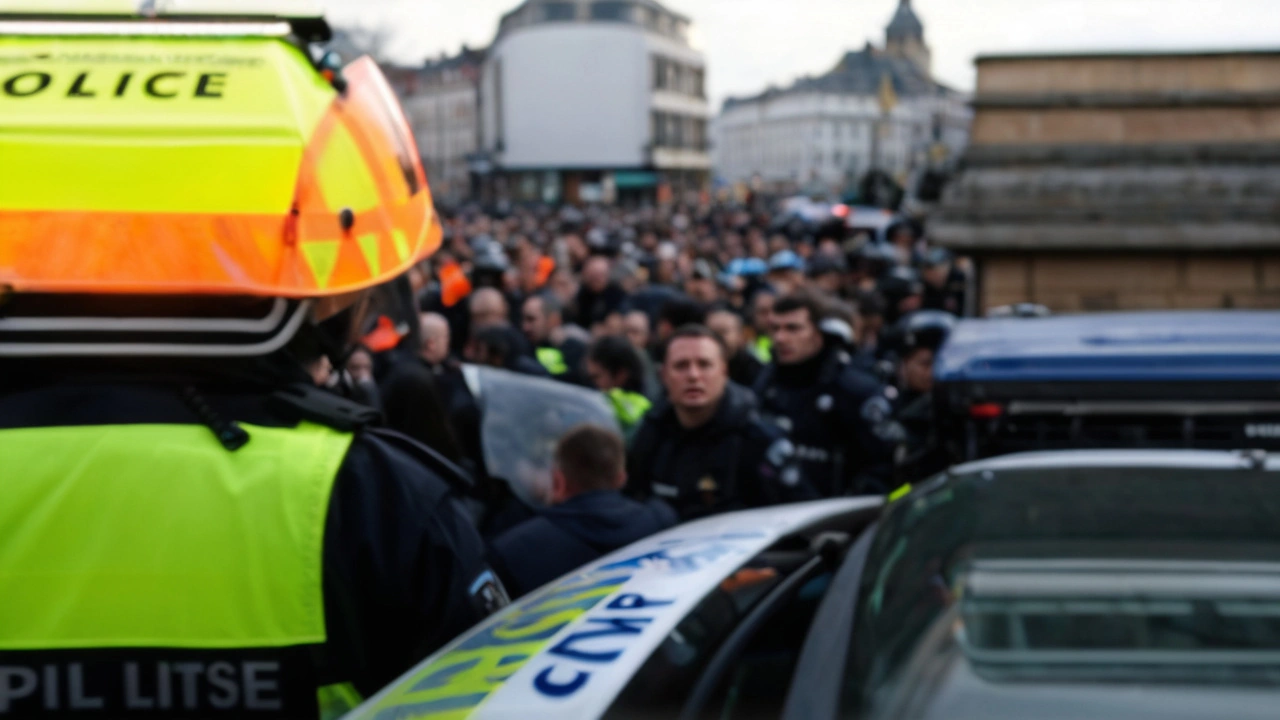
UK Prime Minister Condemns Anti-Immigrant Violence in Rotherham
UK Prime Minister Keir Starmer has issued a strong rebuke against what he termed 'far-right thuggery' following a violent attack on a hotel housing asylum seekers in Rotherham, England. The unrest left at least 10 police officers injured and drew condemnation from various social and political quarters. The prime minister’s comments aimed to address both the violence on the ground and the overarching climate of misinformation that has fueled these events.
These events began escalating after misinformation circulated about a mass stabbing in Southport. The incident involved a British-born 17-year-old named Axel Rudakubana, who has been charged with killing three children. This heinous act was leveraged by anti-immigrant groups to stoke xenophobic sentiments and misinformation, even though the perpetrator was British-born. Starmer emphasized the misleading nature of the narratives being pushed to justify the violent actions. He warned that those participating in the disruption and those spreading falsehoods online would deeply regret their actions and that the law enforcement would not hesitate to take severe actions against them.
Violence Spreads Across Multiple Cities
What started in Rotherham has rapidly spread to other towns and cities, including Liverpool, Manchester, Bristol, Blackpool, Hull, and even Belfast in Northern Ireland. The unrest is characterized by violent clashes between anti-immigration demonstrators and police, as well as counter-protesters. In Middlesbrough, the situation took a dire turn with shops being looted and set on fire, and several police officers suffering injuries in the process. The violence has been noted as the worst the country has witnessed since the infamous 2011 riots, raising alarms among both the government and civil society.
Starmer reassured the public that measures are being taken to bring those responsible to justice. He stressed the importance of addressing the root causes of the violence, particularly the spread of misinformation and the roles that social media and far-right groups play in amplifying xenophobic and racist sentiments.
Political and Religious Leaders Call for Calm
The escalating violence has drawn responses not only from political leaders but also from religious figures. In Liverpool, religious leaders issued a joint statement calling for peace and solidarity among the community members. They highlighted that such violent disorders are against the core principles of unity and harmony that diverse communities in the UK have long upheld. The role of leaders, both religious and political, in quelling the tensions and fostering a more inclusive dialogue has become ever more pertinent in these turbulent times.
There is also growing consensus on the need to mitigate the adverse impact of political rhetoric around immigration. Carla Denyer, co-leader of the Green Party, dubbed the unrest as a 'wake-up call'. She argued that political figures who have promoted anti-immigration rhetoric need to reconsider their stance, urging for a more humane and fact-based approach to the issues of asylum and immigration.
Far-Right Party Gains Ground
One of the most troubling aspects of the current climate is the increasing support for far-right ideologies. Recent elections saw the Reform UK party, led by Nigel Farage, capturing 14 percent of the vote. This figure represents one of the highest vote shares ever secured by a far-right party in Britain, signaling a worrying trend. The surge in support for Farage's party underlines the significant approval for their anti-immigration stance among segments of the population. It points to the necessity for mainstream political leaders to address the underlying concerns that are causing people to gravitate towards far-right solutions.
A Call for Justice and Accountability
Prime Minister Starmer has consistently advocated for a robust legal response to these violent outbreaks. His words,
Write a comment